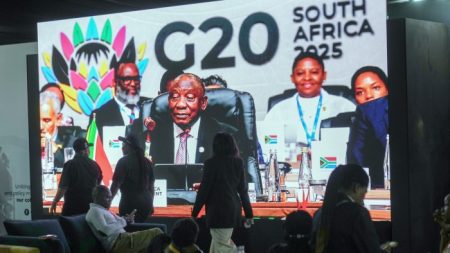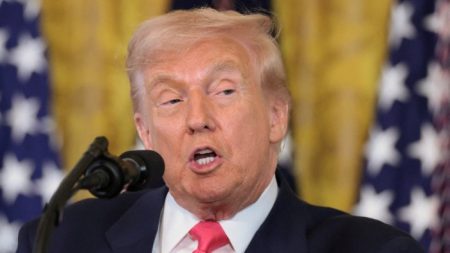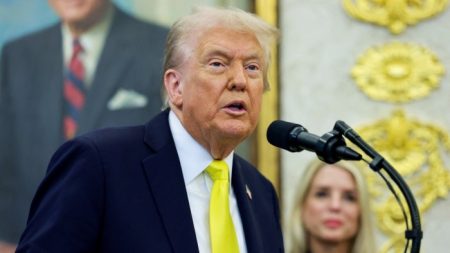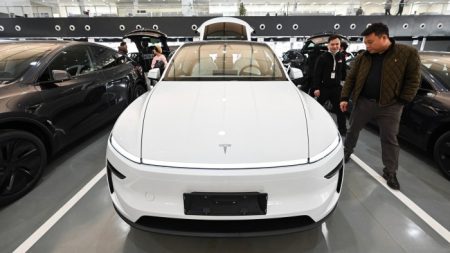US Commerce Secretary Gina Raimondo urged American businesses to keep investing in China on Wednesday, even after saying some US firms had called the world’s second biggest economy “uninvestable.”
Speaking at an American Chamber of Commerce event in Shanghai, the secretary encouraged companies to continue expanding in the country.
“The message is to continue to do what you’re doing,” Raimondo told executives.
Her comments underscore the tension at the heart of the relationship, which was laid bare on Tuesday as she reportedly rejected a request by Beijing to ease US export and investment controls, despite exchanging plenty of warm words over three days of meetings with senior Chinese officials in Beijing and Shanghai.
On Tuesday, Raimondo told reporters that US firms had confided they believed China had become “uninvestable,” according to Reuters, especially after a recent crackdown on American consulting and due diligence firms.
“US business needs to see some action taken to address these issues, otherwise they will deem it as too risky and as I said, uninvestable,” she told a press conference Wednesday.
Wang Wenbin, a spokesperson for the Chinese foreign ministry, responded by saying: “China remains one of the world’s important investment destinations.”
He referred to a previous statement from the country’s premier, Li Qiang, who said China hoped the United States would take “real action” to maintain bilateral ties.
Raimondo’s tour, which ends Wednesday, follows recent visits by three other key Biden administration officials, including Secretary of State Antony Blinken, Treasury Secretary Janet Yellen and Climate Envoy John Kerry, as they seek to stabilize US ties with the world’s second largest economy.
Eric Zheng, president of AmCham Shanghai, told CNN after Raimondo’s appearance that he had not been hearing the term “uninvestable” from businesses on the ground.
“Given what’s happened last year with Covid and all the disruptions, and now currently we’re still dealing with these macro geopolitical tensions, [there’s] a lot of uncertainty,” he said. “So companies, as far as their confidence level, it is low, there’s no question about that.”
However, “most of our members continue to see China as a very important market for them, a strategic market,” he added. “In order to be globally competitive, they have to be in this market despite all the challenges.”
Raimondo is the first US commerce secretary to visit China in five years. Like other US Cabinet officials, she has spent this week trying to restore communication with her Chinese counterparts.
Among the measures agreed Monday was the creation of a working group to facilitate two-way discussion of trade and investment issues, which will meet twice a year, according to the US Commerce Department.
The commerce chiefs have also agreed to meet in person at least once a year.
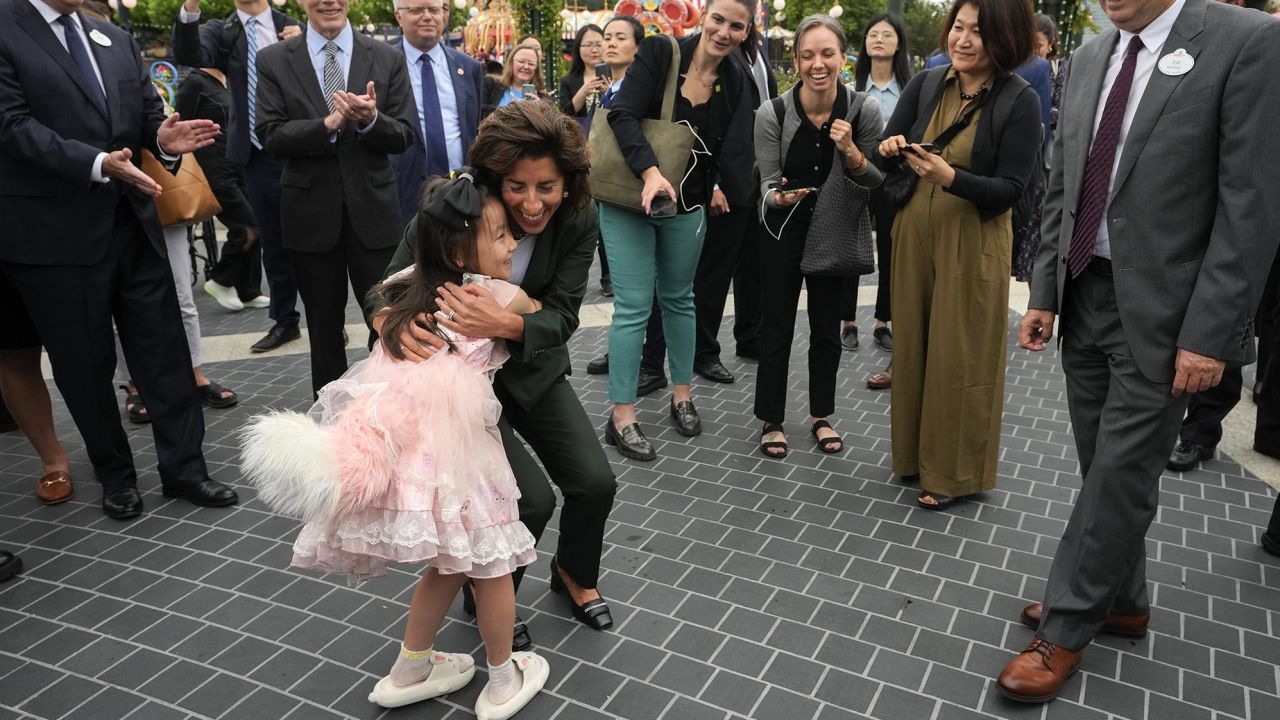
China’s commerce secretary, Wang Wentao, said he appreciated that Raimondo had previously spoken favorably of trade with China, adding that he was ready to cooperate to “foster a more favorable policy environment.”
In several of her meetings, during which she met the premier and Vice Premier He Lifeng, Raimondo repeatedly emphasized the high stakes of their engagement, calling the $700 billion economic relationship “one of the most significant in the world.”
However, a deep divide remains.
As Yellen had sought to do in July, Raimondo tried to convince Chinese officials that the United States was not seeking to decouple from China.
“While we will never, of course, compromise in protecting our national security, I want to be clear that we do not seek to decouple or to hold China’s economy back,” Raimondo told officials on Tuesday.
But instead of basking in the glow of a long-awaited visit, Chinese officials were repeatedly asked whether their country was “uninvestable” following Raimondo’s comment. And little progress was made on thorny trade issues.
According to Reuters, Raimondo said Tuesday that she had rejected a request by Beijing to ease US export controls on technology and reverse an executive order that restricts US investment in Chinese companies that might be involved in military development.
The US Department of Commerce did not immediately respond to a request for confirmation from CNN.
Raimondo also told reporters that during her talks, she raised issues like raids on US firms.
Foreign busineses have reported feeling unsettled this year because of a crackdown on international consulting firms on the grounds of national security and an expansion of China’s counterespionage law.
“US businesses want to do business here, but they need to have a predictable regulatory environment,” Raimondo said.
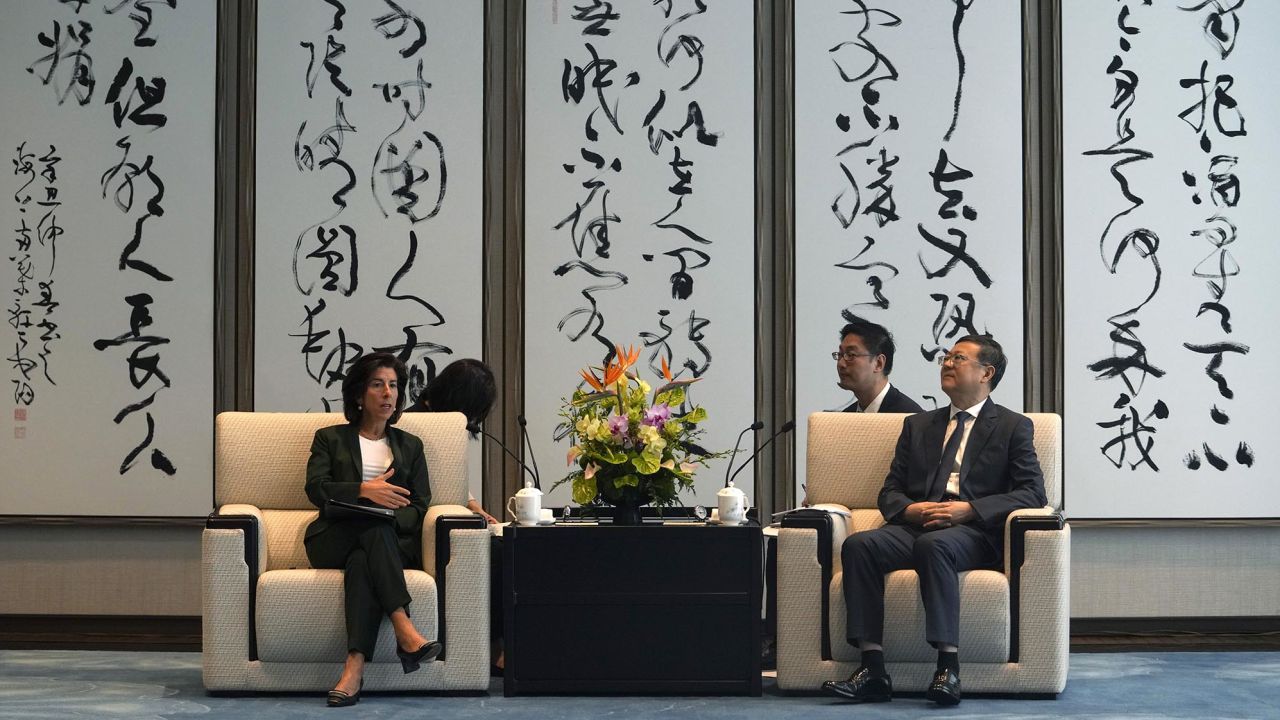
The issue highlights the tightrope the commerce secretary is walking.
“The Commerce Department views itself as being able to accomplish both objectives: promoting US exports to China while simultaneously implementing measures to protect US economic interests through … export controls,” said Nazak Nikakhtar, a former assistant secretary for industry and analysis who served at the Department of Commerce under the Trump administration.
This may work with “like-minded countries,” but not with China, “a country that has repeatedly made public its intention to topple the United States,” she said.
China has pushed back on the notion. It has, in recent months, accused the United States of politicizing economic issues.
Zheng, of AmCham Shanghai, said he saw the visit as “just the first step” in mending the economic relationship.
“Currently our members, if you ask them what is their number one concern, it is really the bilateral relationship or the uncertainty of that,” he said.
“We will still need to deal with other challenges, so it’s going to take time. I think we’re realistic about that.”
— CNN’s Beijing bureau, Jadyn Sham and Alex Stambaugh contributed to this report.
Read the full article here









